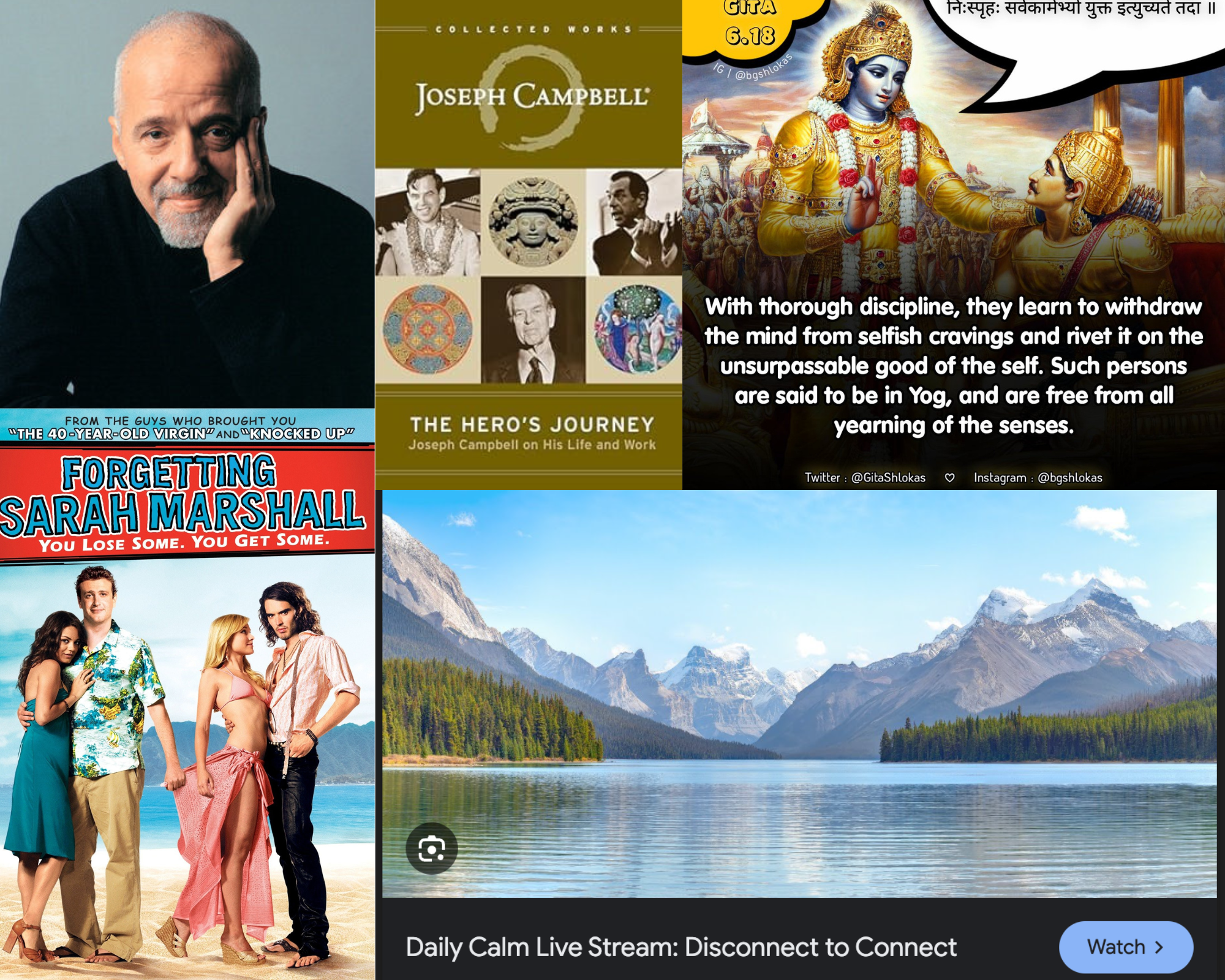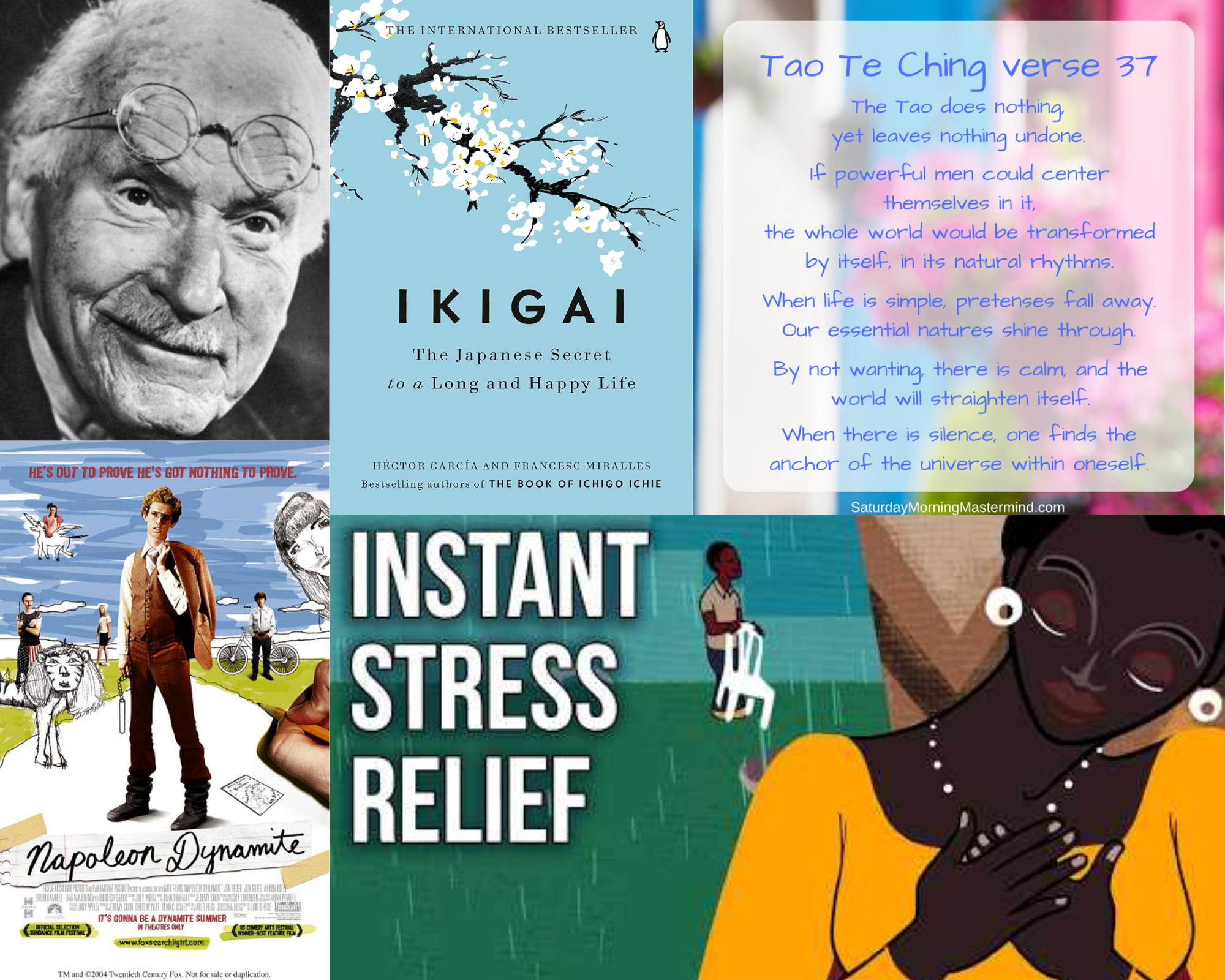Sunday Supplement #179 (October 13th, 2024)
Below is another Sunday Supplement with a quote worth sharing, a book worth reading, a movie worth watching, brainfood worth consuming, and a spiritual passage worth pondering.
Please take something away from these recommendations that enriches your week ahead!
Quote of the Week:
“When you say ‘yes’ to others make sure you are not saying ‘no’ to yourself.”
– Paulo Coelho
Book of the Week:
The Hero’s Journey – Joseph Campbell
Joseph Campbell was a writer and professor of literature at Sarah Lawrence College. His work in mythology and religion is famous.
You may have heard of the phrase “the hero’s journey” before. Campbell believed it to be a monomyth of the archetypal hero shared through various mythologies.
I featured Campbell’s books about the field in previous Sunday Supplements. This book is an autobiography/biography of Campbell’s own life fit into the frame of the hero’s journey.
The book dives into Campbell’s life, his discoveries, conversations with poets, anthropologists, and philosophers, and the role of myth in our lives.
Movie of the Week:
Jason Segel wrote and starred in the 2008 comedy Forgetting Sarah Marshall. Segel plays Peter, who, after getting dumped, takes a Hawaiian vacation getaway only to find that his ex Sarah is at the same resort with her new boyfriend.
The film is brilliantly written with a great supporting cast, including Kristen Bell, Mila Kunis, Bill Hader, Russell Brand, and Paul Rudd.
I was surprised at how much depth the film has for such a raunchy comedy. It earns its R rating but packs more heart and intelligence than cheap laughs.
You should check out the reasons for the rating before watching it, but it is one of my top-shelf recommended Comedies.
Brainfood of the Week:
Daily Calm Live Stream: Disconnect to Connect | Calm
Over the years, I have fallen into and out of a meditation routine. Whenever I’m not practicing meditation regularly, I look back and wish I’d make time for it.
Calm is the number one app for meditation and sleep. The app has many facets, but this post focuses on its daily ten-minute guided meditation.
Their app has some free features, and their YouTube channel posts regular meditation-videos, tips, and other guides to leading a calm life.
I featured a Calm guided meditation in Sunday Supplement #31. I highly recommend looking into a mediation practice and finding one that works for you.
Closing Spiritual Passage:
“With thorough discipline, they learn to withdraw the mind from selfish cravings and rivet it on the unsurpassable good of the self. Such persons are said to be in Yog and are free from all yearning of the senses.”
– Bhagavad Gita 6:18
I’ve featured Chapter 6 of the Bhagavad Gita in a few previous Sunday Supplements. The chapter speaks on conquering the mind through meditation.
This verse focuses on the absence of selfish cravings and the yearning of the senses, leading to the unsurpassable good of the self.
I’ve found mediation to be a powerful tool and experience. I think we have so many demands on our senses and our minds each day that it is vital to find a healthy method of disconnecting.
Make self-care a part of your routine, and have a blessed week ahead!


